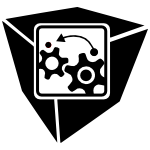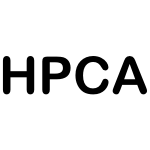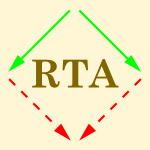29 papers:
 ICSE-v2-2015-BarikLM #commit
ICSE-v2-2015-BarikLM #commit- Commit Bubbles (TB, KL, ERMH), pp. 631–634.
 DATE-2014-KimKKYL #design
DATE-2014-KimKKYL #design- Coarse-grained Bubble Razor to exploit the potential of two-phase transparent latch designs (HK, DK, JJK, SY, SL), pp. 1–6.
 DATE-2014-ZhangB #analysis #probability
DATE-2014-ZhangB #analysis #probability- Stochastic analysis of Bubble Razor (GZ, PAB), pp. 1–6.
 HT-2014-NagulendraV #case study #comprehension #interactive #visualisation
HT-2014-NagulendraV #case study #comprehension #interactive #visualisation- Understanding and controlling the filter bubble through interactive visualization: a user study (SN, JV), pp. 107–115.
 SIGMOD-2014-OzcanTAKMRW #big data #question
SIGMOD-2014-OzcanTAKMRW #big data #question- Are we experiencing a big data bubble? (FÖ, NT, DJA, MK, CM, KR, JLW), pp. 1407–1408.
 CHI-2014-MottW #lens #using
CHI-2014-MottW #lens #using- Beating the bubble: using kinematic triggering in the bubble lens for acquiring small, dense targets (MEM, JOW), pp. 733–742.
 CHI-2014-SeahPBKOKCS #named #smell
CHI-2014-SeahPBKOKCS #named #smell- SensaBubble: a chrono-sensory mid-air display of sight and smell (SAS, DMP, PDB, AK, VSO, JK, AC, SS), pp. 2863–2872.
 DHM-2014-OtaWKTGH #comparison #process
DHM-2014-OtaWKTGH #comparison #process- Comparison of Different Tea Whisk Influence on Bubble Form in Processes of “The Way of Tea” (TO, ZW, SK, YT, AG, HH), pp. 197–203.
 CHI-2013-LiaoF #interactive #topic
CHI-2013-LiaoF #interactive #topic- Beyond the filter bubble: interactive effects of perceived threat and topic involvement on selective exposure to information (QVL, WTF), pp. 2359–2368.
 VISSOFT-2013-ReissT13a #tool support #visualisation
VISSOFT-2013-ReissT13a #tool support #visualisation- Tool demonstration: The visualizations of code bubbles (SPR, AT), pp. 1–4.
 RecSys-2013-TaramigkouBCAM #music
RecSys-2013-TaramigkouBCAM #music- Escape the bubble: guided exploration of music preferences for serendipity and novelty (MT, EB, KC, DA, GM), pp. 335–338.
 HPCA-2013-ChenP
HPCA-2013-ChenP- Worm-Bubble Flow Control (LC, TMP), pp. 366–377.
 ICPR-2012-StrokinaMELK #detection
ICPR-2012-StrokinaMELK #detection- Detection of bubbles as Concentric Circular Arrangements (NS, JM, TE, LL, HK), pp. 2655–2659.
 ICSE-2012-DeLineBRJR #debugging #experience #industrial #paradigm
ICSE-2012-DeLineBRJR #debugging #experience #industrial #paradigm- Debugger Canvas: Industrial experience with the code bubbles paradigm (RD, AB, KR, JJ, SPR), pp. 1064–1073.
 ICSE-2012-ReissBL #programming
ICSE-2012-ReissBL #programming- Code Bubbles: A practical working-set programming environment (SPR, JNB, JJLJ), pp. 1411–1414.
 CHI-2010-BragdonZRKCKCAL #comprehension #interface #maintenance
CHI-2010-BragdonZRKCKCAL #comprehension #interface #maintenance- Code bubbles: a working set-based interface for code understanding and maintenance (AB, RCZ, SPR, SK, WC, JK, CC, FA, JJLJ), pp. 2503–2512.
 CHI-2010-MoffattM #fault #named
CHI-2010-MoffattM #fault #named- Steadied-bubbles: combining techniques to address pen-based pointing errors for younger and older adults (KM, JM), pp. 1125–1134.
 ICPR-2010-PatrauceanGC #identification #invariant #using
ICPR-2010-PatrauceanGC #identification #invariant #using- Bubble Tag Identification Using an Invariant — Under — Perspective Signature (VP, PG, JC), pp. 408–411.
 ICSE-2010-Bragdon
ICSE-2010-Bragdon- Developing and evaluating the code bubbles metaphor (AB), pp. 525–526.
 ICSE-2010-BragdonRZKCKCAL #development #ide #paradigm #user interface
ICSE-2010-BragdonRZKCKCAL #development #ide #paradigm #user interface- Code bubbles: rethinking the user interface paradigm of integrated development environments (AB, SPR, RCZ, SK, WC, JK, CC, FA, JJLJ), pp. 455–464.
 ICSE-2010-BragdonRZKCKCAL10a #research
ICSE-2010-BragdonRZKCKCAL10a #research- A research demonstration of code bubbles (AB, SPR, RCZ, SK, WC, JK, CC, FA, JJLJ), pp. 293–296.
 CHI-2008-LaukkanenIR #lazy evaluation #performance
CHI-2008-LaukkanenIR #lazy evaluation #performance- The cone and the lazy bubble: two efficient alternatives between the point cursor and the bubble cursor (JL, PI, KJR), pp. 309–312.
 CHI-2007-Tsandilass
CHI-2007-Tsandilass- Bubbling menus: a selective mechanism for accessing hierarchical drop-down menus (TT, MMCS), pp. 1195–1204.
 RTA-2006-AntoyBC #correctness #on the
RTA-2006-AntoyBC #correctness #on the- On the Correctness of Bubbling (SA, DWB, SHC), pp. 35–49.
 CHI-2005-GrossmanB
CHI-2005-GrossmanB- The bubble cursor: enhancing target acquisition by dynamic resizing of the cursor’s activation area (TG, RB), pp. 281–290.
 VLDB-2003-ZhouS #clustering #metric
VLDB-2003-ZhouS #clustering #metric- Data Bubbles for Non-Vector Data: Speeding-up Hierarchical Clustering in Arbitrary Metric Spaces (JZ, JS), pp. 452–463.
 STOC-1995-DolevKKP #adaptation #named #network #performance
STOC-1995-DolevKKP #adaptation #named #network #performance- Bubbles: adaptive routing scheme for high-speed dynamic networks (Extended Abstract) (SD, EK, DK, DP), pp. 528–537.
 DAC-1978-Fortin #approximate #diagrams #named #using
DAC-1978-Fortin #approximate #diagrams #named #using- BUBBLE: Relationship diagrams using iterative vector approximation (GF), pp. 145–151.
 VLDB-1978-Chang #database #on the #relational
VLDB-1978-Chang #database #on the #relational- On Bubble Memories and Relational Data Base (HC), pp. 207–229.
 ICSE-v2-2015-BarikLM #commit
ICSE-v2-2015-BarikLM #commit DATE-2014-KimKKYL #design
DATE-2014-KimKKYL #design DATE-2014-ZhangB #analysis #probability
DATE-2014-ZhangB #analysis #probability HT-2014-NagulendraV #case study #comprehension #interactive #visualisation
HT-2014-NagulendraV #case study #comprehension #interactive #visualisation SIGMOD-2014-OzcanTAKMRW #big data #question
SIGMOD-2014-OzcanTAKMRW #big data #question CHI-2014-MottW #lens #using
CHI-2014-MottW #lens #using CHI-2014-SeahPBKOKCS #named #smell
CHI-2014-SeahPBKOKCS #named #smell DHM-2014-OtaWKTGH #comparison #process
DHM-2014-OtaWKTGH #comparison #process CHI-2013-LiaoF #interactive #topic
CHI-2013-LiaoF #interactive #topic VISSOFT-2013-ReissT13a #tool support #visualisation
VISSOFT-2013-ReissT13a #tool support #visualisation RecSys-2013-TaramigkouBCAM #music
RecSys-2013-TaramigkouBCAM #music HPCA-2013-ChenP
HPCA-2013-ChenP ICPR-2012-StrokinaMELK #detection
ICPR-2012-StrokinaMELK #detection ICSE-2012-DeLineBRJR #debugging #experience #industrial #paradigm
ICSE-2012-DeLineBRJR #debugging #experience #industrial #paradigm ICSE-2012-ReissBL #programming
ICSE-2012-ReissBL #programming CHI-2010-BragdonZRKCKCAL #comprehension #interface #maintenance
CHI-2010-BragdonZRKCKCAL #comprehension #interface #maintenance CHI-2010-MoffattM #fault #named
CHI-2010-MoffattM #fault #named ICPR-2010-PatrauceanGC #identification #invariant #using
ICPR-2010-PatrauceanGC #identification #invariant #using ICSE-2010-Bragdon
ICSE-2010-Bragdon ICSE-2010-BragdonRZKCKCAL #development #ide #paradigm #user interface
ICSE-2010-BragdonRZKCKCAL #development #ide #paradigm #user interface ICSE-2010-BragdonRZKCKCAL10a #research
ICSE-2010-BragdonRZKCKCAL10a #research CHI-2008-LaukkanenIR #lazy evaluation #performance
CHI-2008-LaukkanenIR #lazy evaluation #performance CHI-2007-Tsandilass
CHI-2007-Tsandilass RTA-2006-AntoyBC #correctness #on the
RTA-2006-AntoyBC #correctness #on the CHI-2005-GrossmanB
CHI-2005-GrossmanB VLDB-2003-ZhouS #clustering #metric
VLDB-2003-ZhouS #clustering #metric STOC-1995-DolevKKP #adaptation #named #network #performance
STOC-1995-DolevKKP #adaptation #named #network #performance DAC-1978-Fortin #approximate #diagrams #named #using
DAC-1978-Fortin #approximate #diagrams #named #using VLDB-1978-Chang #database #on the #relational
VLDB-1978-Chang #database #on the #relational









